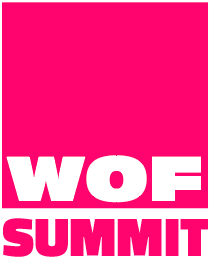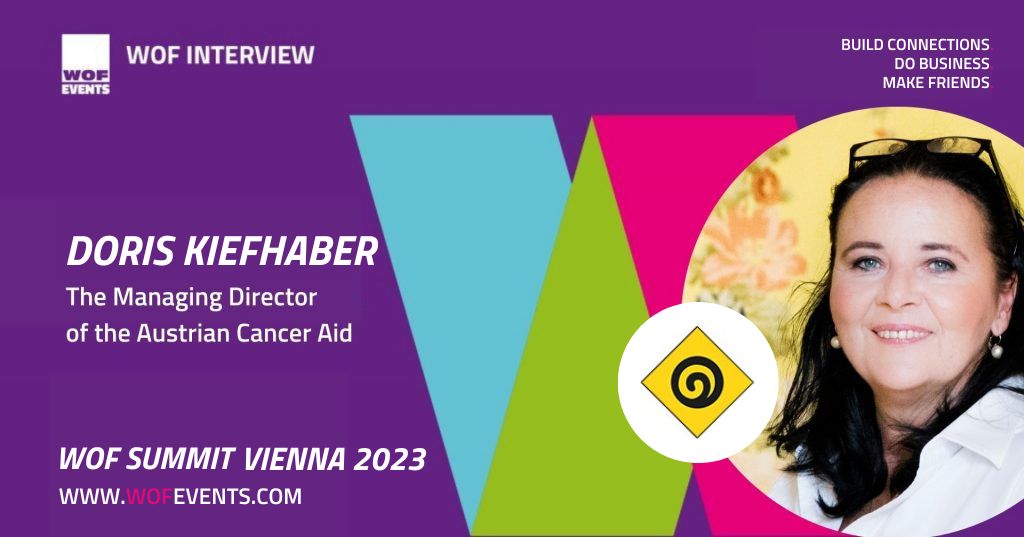Interview with Doris Kiefhaber, Managing Director at Austrian Cancer Aid
WOF Events have been supporting the local Leagues Against Cancer as we move with our events around the CEE. In Austria, the beneficiary is The Österreichische Krebshilfe. We took a chance to interview their Managing Director, Doris Kiefhaber, and asked some interesting questions.
What are the accomplishments of Österreichische Krebshilfe that you are particularly proud of?
I am very grateful that we have accomplished several goals to improve the life of cancer patients, such as the introduction of financial support for patients who lost their financial balance due to cancer. Another thing I am very grateful for is that after seven years of negotiations with the government, a new law has been implemented which allows cancer patients to „slowly“ reintegrate into their jobs once they finish the therapy. Because no cancer patient is immediately 100% fit to work after finishing the challenging treatment, it turned out that the new law is helping both – patients and employers.
You decided to spend the WOF donations on the Pink Ribbon campaign this year. Please, tell us a little about it?
The „Pink Ribbon“was founded in 1992 by Evelyn Lauder and has developed into THE symbol for BREAST CANCER. The Austrian Cancer Aid started the campaign in 2002 and successfully built a network of Breast Cancer Patients, supporting partners, medical experts, and media. In the last 20 years, the Austrian Cancer Aid received nearly 10 Mio. Euro, which enabled the direct support of Breast Cancer Patients. More than 80.000 times, Breast Cancer Patients received medical support, psychological support, and financial aid. Due to the global economic situation, more patients than ever before needing financial support. The Austrian Cancer Aid reports an increase of 34% in young women who can not afford their additional expenses caused by breast cancer. And thanks to the donations, we can help women – and men affected by breast cancer – better deal with the diagnosis of breast cancer and all the associated concerns, questions, and challenges and provide immediate financial aid.
What can companies or individuals do in order to help and support the aim of your organizations apart from a financial donation?
The answer is easy: Spread the word! Everybody can play an important role by reminding loved ones, friends and colleagues that early detection of cancer is the key. This can be done privately or by inviting us to join company meetings and talk about the importance of early detection of cancer. And we depend on people to remind each other that we are there to help them if they face cancer.
People can be suspicious of the idea of sending money to NGOs. What methodology does your organization use to distribute the donated finances and how can a donor check your transparency?
I recommend everybody intending to donate or cooperate with an NGO that is carrying the so-called „Spendengütesiegel“ – a hallmark guaranteeing the transparency and high quality of how donations are handled and spent.
If a company wishes to spread the message about prevention, how can Krebshilfe assist, and can you give an example of a cooperating company that, in your opinion, does a perfect job of supporting its employees in this regard?
I am very grateful that many companies already include well being and health of their employees in their understanding of successfully and responsibly running the company by showing they care. We are closely cooperating with a number of companies like Estée Lauder, Hofer, Bipa – to name a few. They dedicate products to, e.g., „Pink Ribbon“, donate parts of their revenues, and in return, we provide health care education. This has turned out to be more than a win-win situation.
What are your tips on choosing a career with the highest social impact?
As far as I am concerned, the job found me. I needed a change, and I wanted to do something that made „sense. “One day, I saw the Austrian Cancer Aid job advertisement looking for a General Manager. It immediately hit me. I decided to take a chance and promised to stay for three years, give back to the community and return to the healthcare business afterward. That was 23 years ago, and I never regretted it.
What can you recommend to someone who is about to establish an NGO and raise money for charity?
Think twice. If you do it properly, fulfilling the highest possible ethical standards, you will have to follow many more rules and regulations than you ever thought. But if you do so and live your dream, you will be rewarded by making a difference in many people’s life.
******
The Österreichische Krebshilfe is an Austrian non-profit association and the umbrella organization of nine independent national associations. The tasks of the Austrian Cancer Aid are informing the population on the subject of cancer prevention and educational work on prevention, early detection, advice and help for sick people and their relatives, advanced training for doctors, establishment of cancer aid advice centers and applied health research. The association is financed by donations and President of the Austrian Cancer Aid has been Paul Sevelda since 2000.


